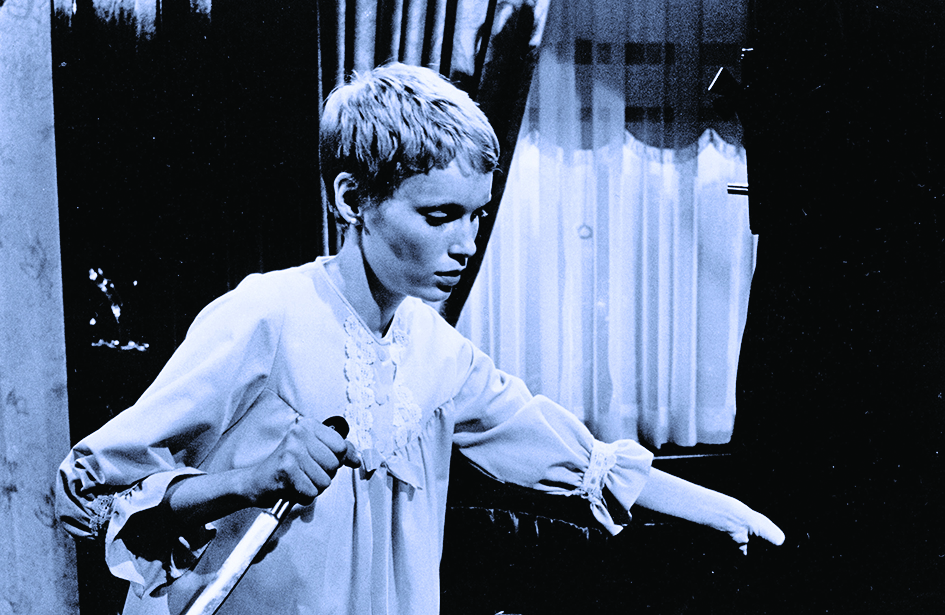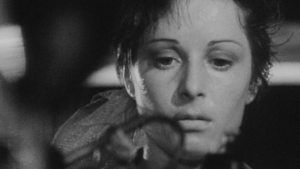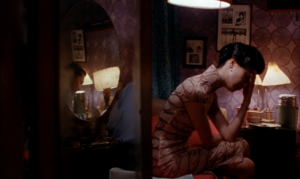From early February to early June 2021, when Sydneysiders such as myself could freely attend, Sydney’s Ritz Cinemas – part of an independent group of cinemas that also includes Lido, Cameo and Classic in Melbourne – showed the Coen brothers’ oeuvre on Friday nights. That is a mighty thing, for it’s a mighty oeuvre, and those of us who did not attend may have been kicking ourselves later when cinemas in Sydney shut down due to the COVID-19 pandemic and we were reduced to watching The Hudsucker Proxy (1994), Fargo (1996) and No Country for Old Men (2007) on our iPads.
As cinemas opened again, the Ritz continued programming stellar retrospectives. It rounded out 2021 with a chronological survey of the films of Paul Thomas Anderson, and has reprogrammed the same for Pedro Almodóvar’s huge filmography, an endeavour that will span months. It was due to play throughout winter and spring of 2021; instead, the retrospective of twenty-two feature films, six in 35mm, was rescheduled to kick off in January 2022, starting with an advance screening of the Madrid maestro’s newest work, Parallel Mothers (2021).
It’s not that there won’t be other films to see. There is an enormous schedule of new releases, a tidal wave of content, locked and loaded for the remainder of this year. But the vogue for retrospective screenings and, more enticingly, retrospective series will continue at the Ritz, which clearly sees such programming as part of its artistic mandate. Melbourne has a rich heritage of specialist and repertory cinema, and Sydney used to be blessed with the Valhalla Cinema in Glebe – a fully repertory venue – and the Cinémathèque on Monday nights at the Chauvel in Paddington. But the Chauvel, now part of the Palace chain, no longer runs the Cinémathèque, while the Valhalla is now a cafe and offices – so the Ritz offerings are welcome indeed.
Alongside auteur retrospectives, the cinema group also offers series of all shapes and sizes, usually inspired by a particular release and often verging on the delightfully idiosyncratic. Programming in late 2020 included, for example, a series called ‘All of Them Witches’,a collection of witch-themed cinema named after a (fictional) book mentioned in Rosemary’s Baby (Roman Polanski, 1968)and including such diverse fare as that film, Suspiria (Dario Argento, 1977) and Hocus Pocus (Kenny Ortega, 1993), while a simultaneous Nicole Kidman retrospective included everything from BMX Bandits (Brian Trenchard-Smith, 1983) and The Stepford Wives (Frank Oz, 2004) to Paddington (Paul King, 2014).
The Ritz, Cameo, Classic and Lido group of cinemas are a family affair – specifically, the Tamir family, who have been steadily acquiring the Melbourne venues under the business name Moving Story Entertainment since 1996, but only bought the Ritz in early 2019. Benji Tamir says that something like ‘All of Them Witches’ can come about through a combination of circumstance and happenstance:
We [already] had some titles [… but] we also have two staff members who are particularly interested in films with witch themes, so we thought we would go for it. We knew this program was limited in how well it would do. It is certainly niche. But it performed well and was certainly worth trying.
Tamir says that the family has increased such screenings in Melbourne since purchasing the Ritz, which previously had a reputation for repertory programming: ‘We have applied our learnings to Melbourne sites, [to run alongside those cinemas’] focus on specialist programming via film festivals that we own and operate.’ Those events include the Jewish International Film Festival, the Children’s International Film Festival and the Fantastic Film Festival, dedicated to screening ‘more daring works’. It was at the latter, for example, that Sydneysiders were first able to see The Trouble with Being Born (2020),Sandra Wollner’s complex examination of ethical issues surrounding artificial intelligence that was controversially dumped from the Melbourne International Film Festival. In an exciting development, the group has created a new festival, Europa! Europa, which promises to offer ‘the world’s best new European films’ across all four of the family’s cinemas in February.
So far, the response to retro programming at the Ritz has been ‘super strong’, Tamir says; he also notes that, while the pandemic ‘accelerated our retro programming as new releases dried up’, ‘it will be a key focus of our programming moving forward’. Audiences seem to be enjoying the long-running filmmaker surveys, in particular. ‘We find that momentum builds,’ says Tamir.
Numbers rise as the retrospective continues. It seems people want to go along for the ride and see the [entirety of the] director’s works. Of course, the biggest, well-known films do best, but it is solid across the board.
Of course, such programming is an art, not a science, and there are hits and misses. ‘David Fincher was weaker than we would have hoped,’ admits Tamir. On the other hand, he says, ‘Claude Sautet and Jean-Pierre Melville were two programs we put together with Cinema Reborn that we did not expect to bring in huge numbers. We were very wrong about that! Especially Melville – it exploded.’
Ultimately, Tamir says, ‘We aim to run everything at a profit, [but] we also value vibe and uniqueness in our profit-and-loss calculations.’ That’s a win for all audiences. On the footpath outside the Ritz after one of its screenings of Rosemary’s Baby in 2020, a group of twentysomethings, all clearly new to the film, were discussing it excitedly. They’d seen it together for the first time, on a big screen in the dark – the way it was meant to be.





